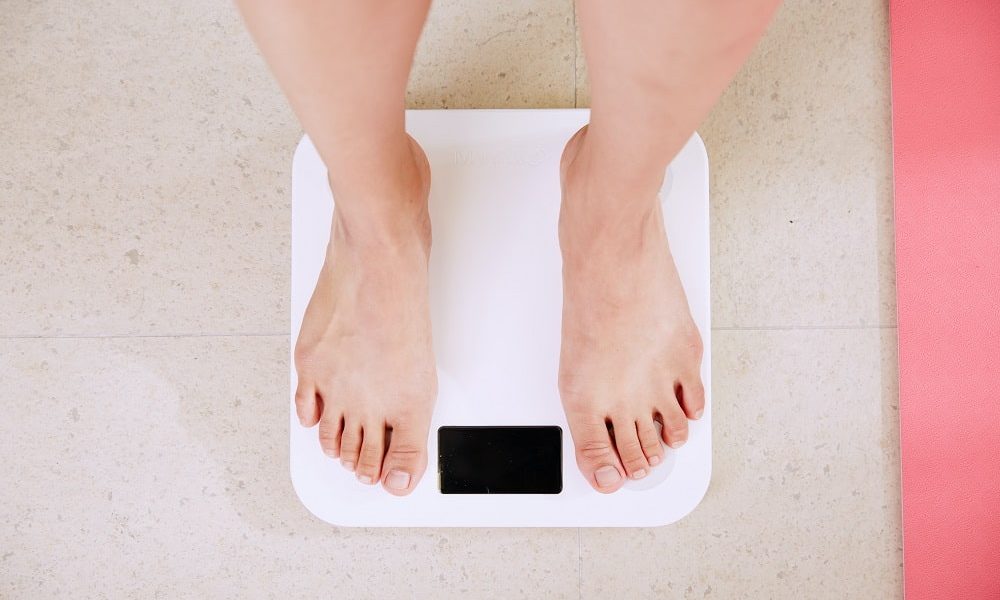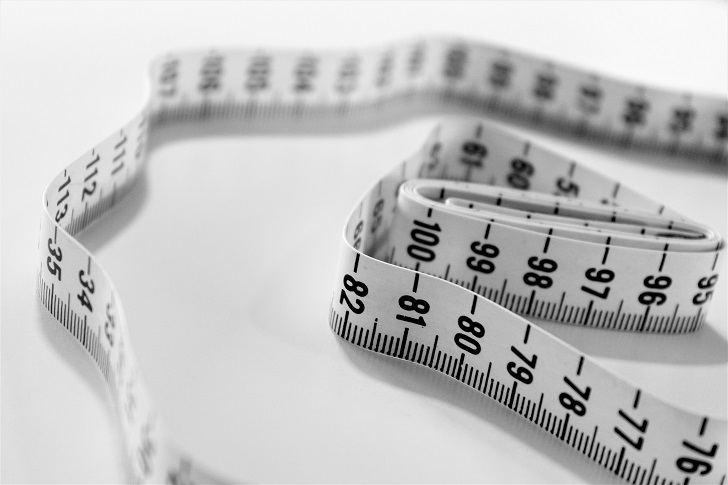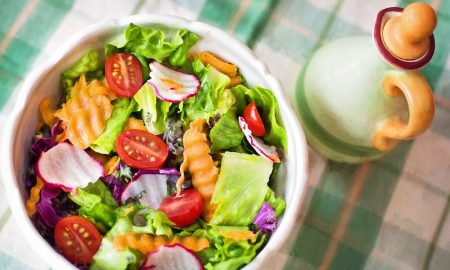
Losing Weight is Still Possible Even if You’re Over 40—Here’s How You Can Do It

By the time you reach your 40s, you’ve most probably become much wiser, more self-aware, and more self-confident. However, the physical changes you experience may be tough for most.
One of the most common downsides in aging is the downshift in your metabolism; therefore, making your weight maintenance more challenging. Some might think that you can’t lose weight after the age of 40. On the contrary, shedding pounds is possible at any age. It’s just that you have to make sure that you prioritize nutrition over restriction.
If you’re not sure where to start, here are 5 nutrition tweaks to help you get fitter past forty.

You can still lose weight even after 40
Lessen—Not Cut Out—Carbs
Some diet plans advise people to shun carbs. However, leaving it out completely from your diet deprives your body of necessary nutrients.
Carbs are considered as the body’s fuel, and whole carbs are packed with antioxidants, vitamins, minerals, and fiber just like whole grains, fresh fruit, and potatoes. Not consuming the needed amount can lead to side effects like fatigue, constipation, and irritability.
As for the case of people aged 40 and above, they have a lesser daily carb requirement so some may find that they gain weight or struggle to shed the extra pounds after eating large carb portions. The best remedy for it is to be mindful of the quality of carbs you consume. That means opting for butternut squash instead of processed bread.
Natural carbs are not essentially fattening or bad, so you don’t have to nix it completely. Just treat it as an add-on to a meal rather than the main attraction and consume enough for what your body needs.
Pack On the Veggies
The trick in making healthy meals is to start with your veggies and build your meal around it. Experts recommend consuming 5 cups per day. Aside from it providing valuable nutrients and protection against diseases, veggies can also make you feel fuller, add volume to your meals, regulate insulin and blood sugar levels, and promote healthy digestion. These things benefit sustainable weight management.
Unfortunately, only 9% of adults consume the recommended minimum amount of 2 to 3 cups of vegetables per day. Try to make them the largest component of your meals. Add in lean protein, a smaller portion of healthy carbs, and good fat for an ideal balance of weight management and good nutrition.
For breakfast, you can make a green smoothie, add veggies to your scrambled eggs, or just have the veggies as sides. Trade your lunchtime sandwiches or wraps for salads or veggie-heavy bowls. And dinner can mean stir-fried, sautéed, grilled, or oven-roasted veggies.

Green smoothies are perfect for breakfast
Drink Alcohol Moderately
Don’t worry, we’re not telling you to get rid of your booze. Just drink it in moderation. Alcohol consumption can be quite tricky: heavy or binge-drinking among women can increase the risk of obesity while moderate drinking, as research says, can help in weight management.
Drinking in moderation means you only consume a maximum of 1 drink per day—and no, the limit can’t be carried over to the next days. This 1-drink limit is equivalent to 12 ounces of beer, 5 ounces of wine, and a 1.5-ounce shot of distilled spirits like whiskey.
Alcohol can lower your inhibitions and stimulate your appetite, so you might end up mindlessly eating more than usual. Also, the body prioritizes breaking down the alcohol, so the food you eat with your booze would less likely be burned. Too much alcohol can also disrupt your sleep cycle, which then affects your weight management, metabolism, and belly fat accumulation.
Have a Daily Dose of Dark Chocolate
Yes. You read that right. It’s recommended that you eat a daily dose of chocolate—but dark chocolate. Five squares of the 70% kind have just under 250 calories, but it is packed with fiber, antioxidants, and magnesium, a mineral that can help you relax, improve your sleep, and enhance your mood.
A study, which involved respondents who rated themselves as highly stressed, revealed that consuming an ounce and a half of dark chocolate per day for 2 weeks can reduce stress hormones—stress being a major trigger for emotional eating. Dark choc can also curb your cravings for sweet and salty grub.

Eating 70% dark chocolate every day can curb your cravings for sweet and salty foods
Avoid Diet Food
Diet foods, aka low-fat or reduced-fat foods, are highly-processed products that are manufactured using artificial chemicals and engineered to have lower calories, fat, carbs, and sugar. So, it would probably be best to cut it off entirely. It’s not only unsatisfying, but it can also mess with your appetite, trigger inflammation, strain your immune system, and affect the healthy bacteria in your gut that aids in weight management.
Making the switch from processed foods to whole foods can also boost calorie burning; therefore, helping you lose weight without decreasing your calorie intake. Dieting doesn’t make for a sustainable weight loss. Don’t undereat (nor overeat), and adopt a mentality of balance.
More in Well-Being
-
`
Jennifer Aniston’s Timeless Tips for Health and Youthfulness
Iconic Hollywood actress Jennifer Aniston has long been admired for her acting prowess and seemingly ageless beauty and vitality. Now in...
November 22, 2023 -
`
Unleash Your Entrepreneurial Drive: 5 Strategies for Self-Motivation
5. Have an Undying Passion Passion is the driving force behind the world’s most successful entrepreneurs. Self-motivation becomes second nature when...
November 19, 2023 -
`
How to Go Vegan – The Right Way!
The vegan lifestyle has seen a significant surge in popularity lately, and rightly so. Embracing veganism not only fosters personal health...
November 12, 2023 -
`
7 Eye-Opening Reasons to Drink More Water
Water is frequently hailed as the quintessential elixir for life, and rightfully so. Constituting approximately 60% of our total body weight,...
November 1, 2023 -
`
Drake’s Workout Regimen: How the Canadian Rapper Stays Fit
The lights dim, the stage is set, and the crowd’s anticipation is palpable. When the beat drops, there is one Canadian...
October 24, 2023 -
`
Why Six-Figure Family Holidays Are Becoming the New Normal
In the panoramic landscape of the modern travel scene, a particularly glittering trend is emerging, akin to finding a diamond the...
October 21, 2023 -
`
Foods With High Water Content
Water is the elixir of life, and staying adequately hydrated is crucial for maintaining our health and well-being. While sipping on...
October 15, 2023 -
`
The Impact of Wearable Technologies in Health Research
In recent years, wearable technologies have emerged as a powerful tool in health research, revolutionizing how we collect and analyze data...
October 3, 2023 -
`
How Celebrities Stay Fit? Secrets of Chris Pratt, Jennifer Lopez & More
The glitz and glamor of Hollywood may make it seem impossible for celebrities to maintain an enviable physique. But it is...
September 29, 2023















You must be logged in to post a comment Login